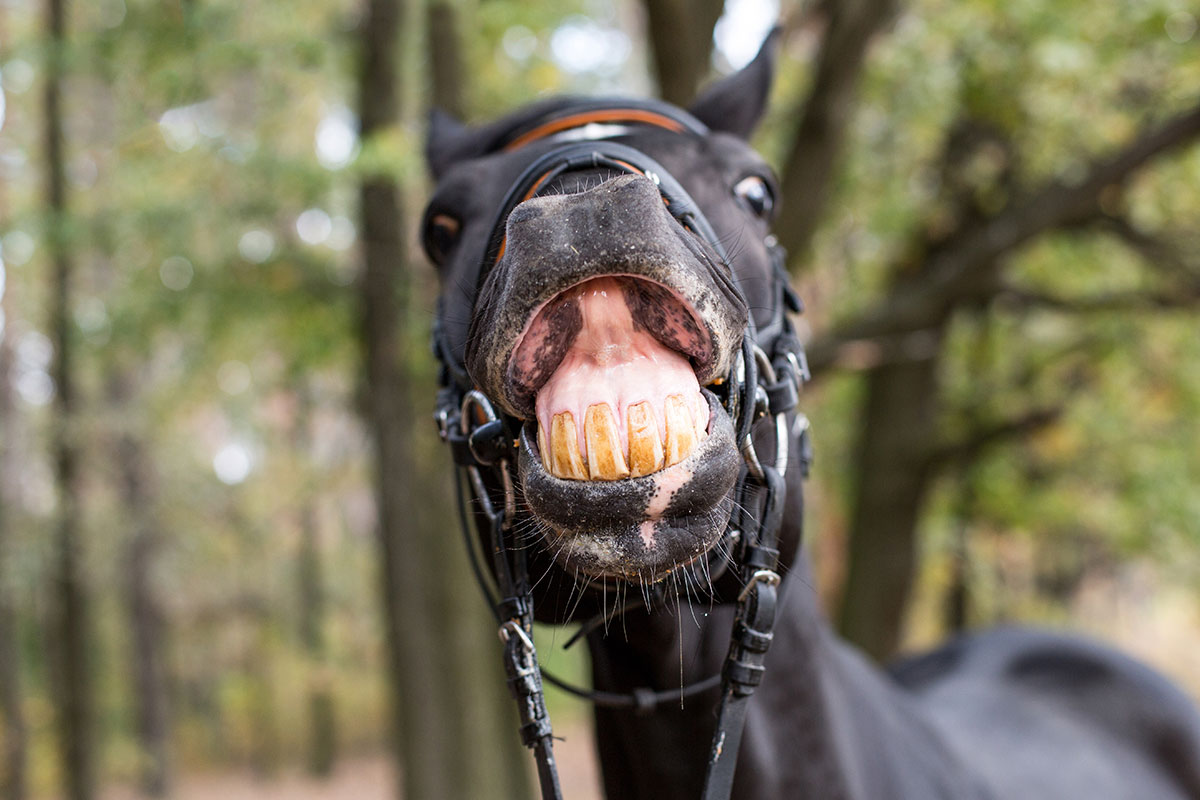
08 May 2020 Senior horse basics: long in the tooth
As horses age, their ability to thoroughly chew and digest hay and grain is affected. A tooth extraction, disease, or a dental abnormality like sharp points or hooks compromises a horse. Dental care becomes even more critical.
Lax dental care leads to other health challenges, according to Dr. Mary Rose Paradis, DVM, MS DACVIM (LAIM), Associate Professor Emerita at Tufts University. “I would put dental problems on the top of the old horse problem list. These problems may be due to dental disease, or it can be due to the normal process of dental wear.”
Recognizing potential dental problems is best observed at mealtime. A few minutes of observation watching your horse eat offers necessary clues about teeth condition. Aside from the visible signs like a lost tooth or nasal discharge, note these changes:
- Behavioral changes, including the pace of eating or a reluctance to eat
- Grain or hay dropping or quidding from the mouth
- Sideways head tipping or head tossing
- Foul mouth odor
- Excessive drooling
- Noticeable weight loss
- Swelling in the face
- Blood in the mouth
Dental disease and discomfort are preventable. Though some dental challenges may result from genetics, the source of most problems arises from improper or inadequate dental care. Substandard dental care opens Pandora’s box of issues, including colic cases, due to an inability to process food adequately.
Adopted horses encounter the most trouble. Holes in a horse’s veterinary treatment history and an inadequate care protocol introduce our equine herd’s most vulnerable problems. If you are a horse owner beginning from ground zero, ensure your veterinarian does a thorough examination of not only the horse’s teeth but mouth. In addition to lost or loose teeth, sharp points or hooks, and an uneven wave appearance with the molars, lacerations, ulcers, and infection may enhance an already challenging scenario. An annual or bi-annual dental float improves a horse’s chewing ability and betters its digestion of necessary nutrients.
Managing your equine senior’s dental routine often requires dietary changes. Softening feed allows the horse to consume hay and grain more comfortably. One or two simple adjustments like any listed below ensure your senior citizen enjoys every meal.
- Soak or dampen hay to reduce particle size and prevent choke
- Include feed alternatives like hay cubes or beet pulp
- Administer pain medication as needed
- Integrate a senior horse feed with softened texture
- Provide consistent access to fresh, clean water, and in winter, consider a heating implement.
- Offer salt in the form of a block or free salt to encourage water intake.
- Add electrolytes to feed to build a water intake.
- Annual or bi-annual dental checkup
- Monitor herd dynamics if your horse eats with others
Mealtime is a favorite time of day for any horse. Make sure your horse enjoys every bite, whether inside its stall or outside under the stars.

